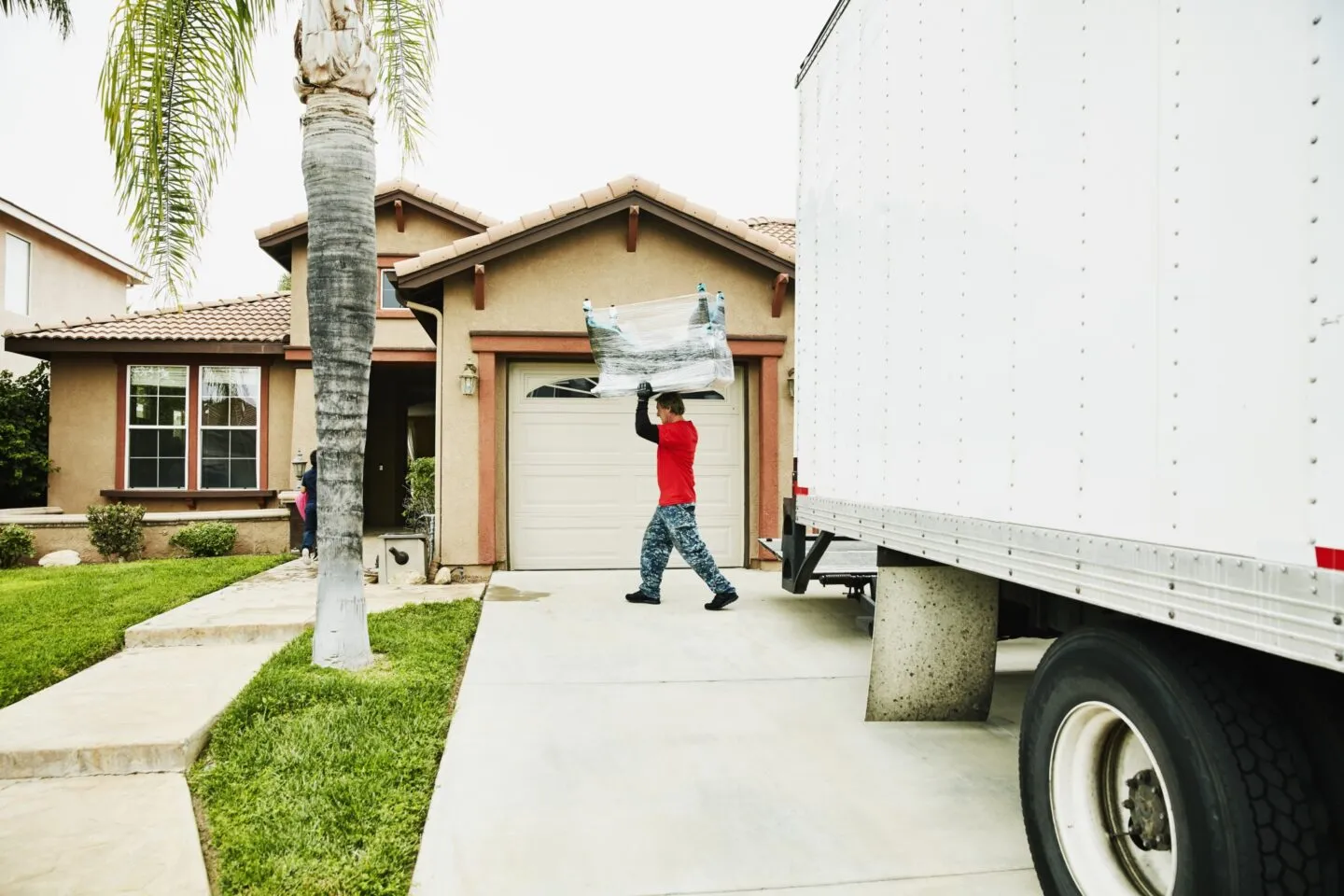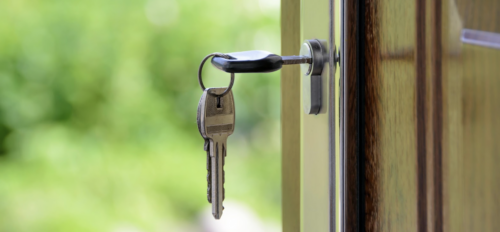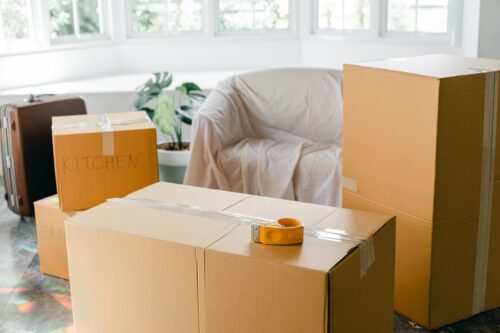After renting for so many years, you’ll likely feel incredibly excited to move into a home over another apartment. This is a huge step in the right direction and signifies a new chapter in your life; owning property comes with a wealth of benefits, such as more space, additional privacy, and the ability to customize your living environment exactly how you see fit. However, moving from an apartment to a house isn’t something you do every day and you can’t just dive into it without some thoughtful planning.
From figuring out your moving budget and dealing with the logistics with your movers to getting used to a different way of living and determining what to prioritize when you move in, there are a lot of things to ponder. In this article, we will delve into the key aspects you should consider when making this move, and we’ll share some expert tips and advice to help you smoothly navigate this exciting transition.

1. Compile a Checklist of Home Projects to Tackle Pre-Move
Owning property is an exciting prospect! It means you can finally mold your space in your own vision. Once you’ve visited the property, it’s time to start thinking about what you’d like to improve at your new location. You’ll be in charge of everything at your new home, so it’s important to identify what needs to be updated. Take a look at your new place and figure out which home improvement projects should take priority, which may include:
• Repaint the interior rooms to refresh the spaces to your liking
• Swap out outdated fixtures for more modern ones
• Replace your roofing system with new materials for better protection and a new aesthetic
• Update the landscape design with new softscaping options and other materials
Additionally, as you begin with this thrilling relocation job, keep in mind that while each home improvement project is exciting and it’s wise to build a list of projects to prioritize after you move in, make sure you consider the next point too.

2. Keep Your Savings in Mind
Moving can be an expensive ordeal and costs can add up quickly; too often, new homeowners are caught off guard by hidden fees and additional expenses that weren’t included in the original moving estimate. On top of the down payment and closing costs, you’ll need to set aside extra funds for your moving expenses and home improvement projects. Don’t forget to also account for other costs like utilities, property taxes, and home insurance. All of those can significantly affect your overall living expenses after moving in.
To help you navigate these complexities, here are a few helpful strategies to keep in mind:
• Enlist the help of a real estate agent when searching for a home. They are experienced in all the nuances of homeownership and will make you aware of all potential costs and considerations. They can also provide valuable insights into the market and offer tailored advice to keep your expenses low.
• Downsize your total moving inventory for lower moving costs. Go through all your possessions and identify things that you want to keep, sell, or donate. Then make a plan to get rid of your sell and donate piles before moving day.
• Make a detailed and itemized budget for all moving expenses and any future plans. Compile the estimated averages for all things like utilities, moving supplies, home improvement project costs, and more. Once you have firm numbers on paper, you’ll have a better sense of how much money you need to set aside for the transition and afterward.
Having a safe financial set-up will give you a cushion and ensure a smoother transition, so make sure you keep all costs in mind.
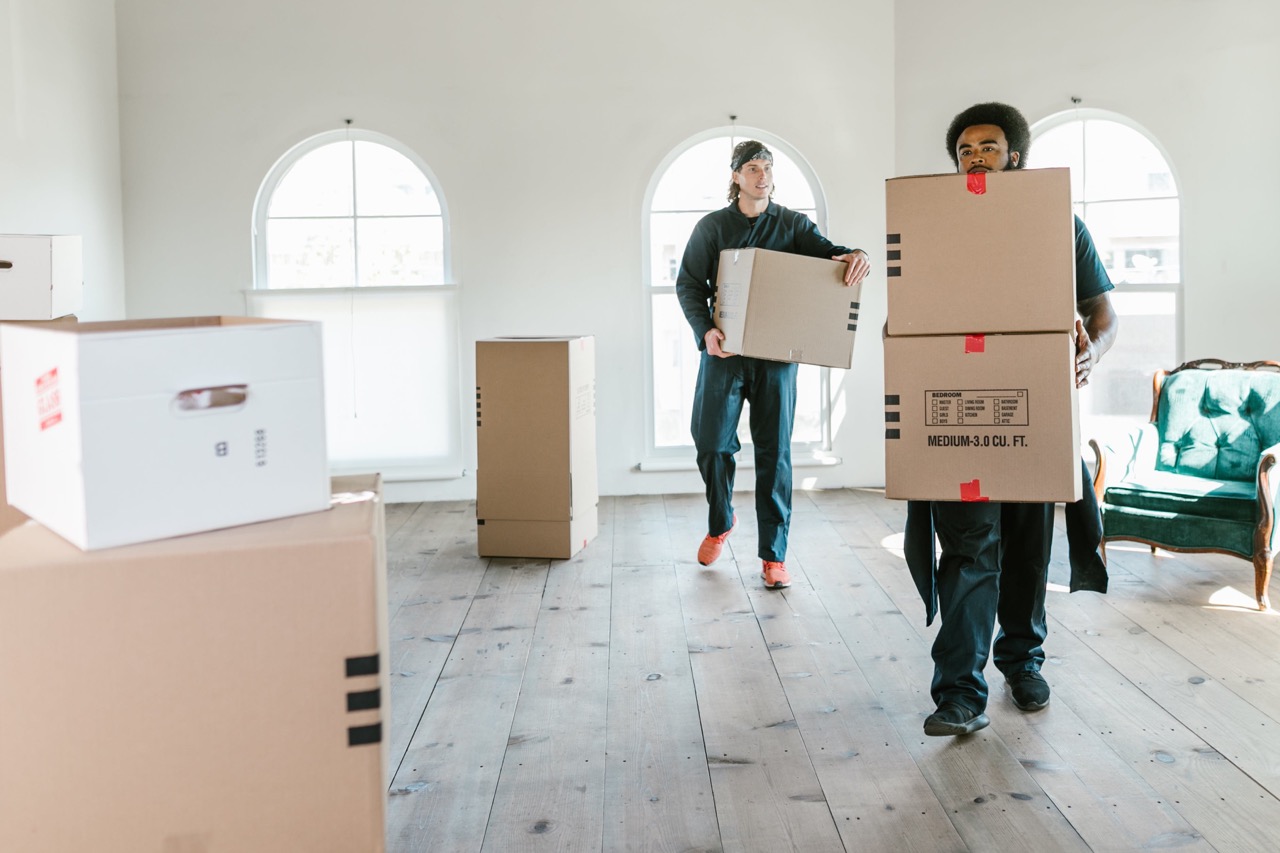
3. Take Inventory of Additional Spaces
One of the cool things about moving from an apartment to a house is that you get loads of extra space. How can you make the most of your extra space and maximize the value of your new property? Take some time to map out the floor plans and imagine how you can optimize these areas.
Have you always wanted a home office? What about a workout corner? Or do you envision renting out rooms on Airbnb for some extra change throughout the month? Just keep in mind that while it’s a good idea to create more functional spaces in your new home, you also should strive to make it your own. When you have plans for each room, you’ll help keep things organized, saving you from that clutter down the line.
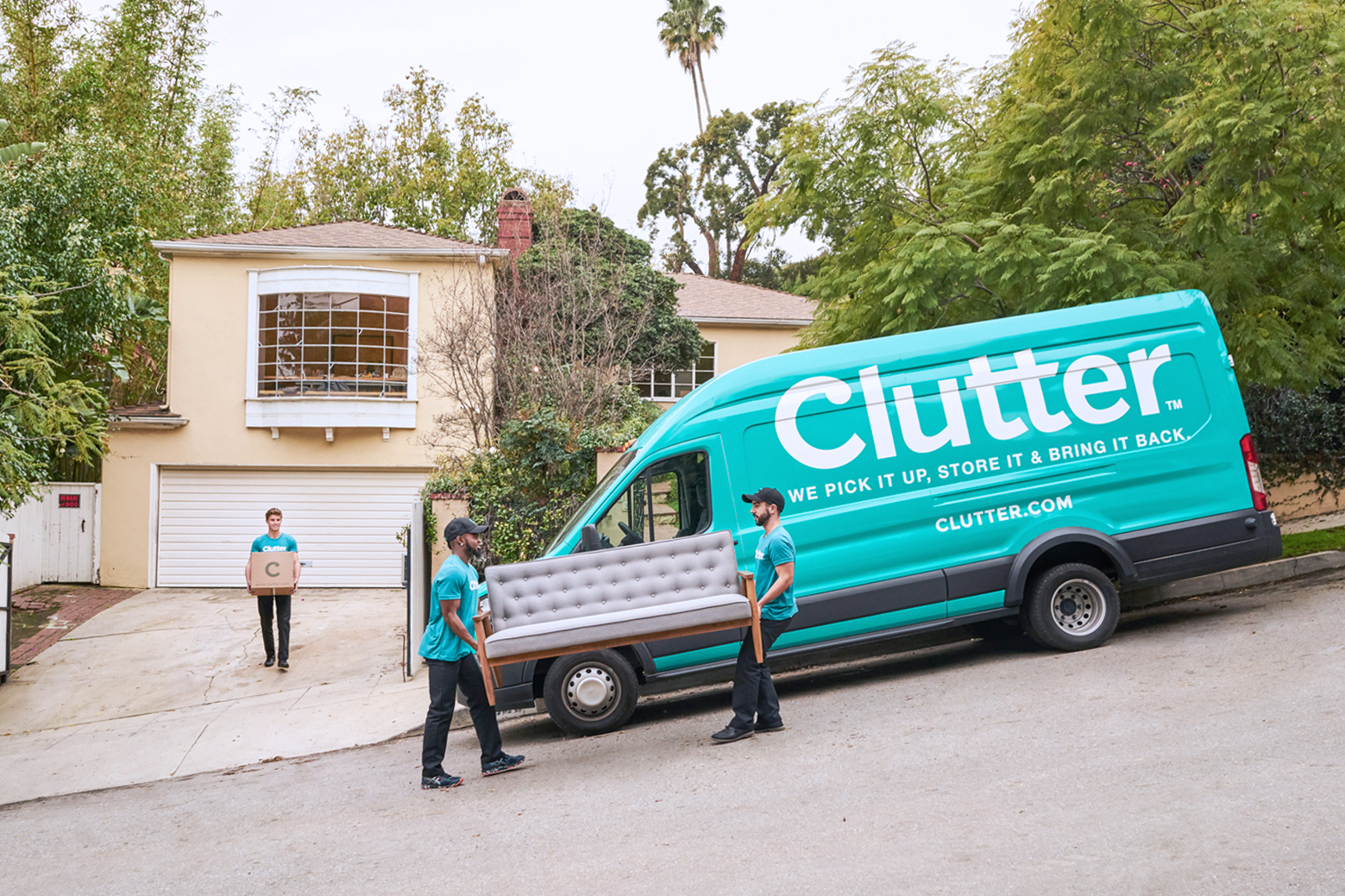
4. Be Mindful of Your Moving and Packing Needs
If you’re moving from an apartment, you likely don’t have a ton of stuff, but don’t be fooled: there will still be plenty of things to move between your clothing, your furniture, your knick-knacks, and so on. It’s important to assess how many things you need to move, how far you need to move, and if you need some additional help.
Professional movers can handle the bulk of the heavy lifting and transportation for you, and when you hire full-service movers, they can even take care of packing, unpacking, furniture disassembly and re-assembly, and more. Keep in mind that movers will add more costs to your overall transition, but they can be worthwhile when you are short on time or patience.
If you prefer to do things on your own, keep these tips in mind:
• Invest in new packing supplies to ensure durability and reliability
• Use different-colored labels for each room to simplify the unpacking process
• Always pack the heaviest items at the bottom of the box
• Use any storage containers, suitcases, and other boxes that you already own to reduce waste and save money
• Reserve the bigger boxes for lighter things (e.g., clothing, knick-knacks, etc.) and smaller boxes for heavier things (e.g., books, papers, etc.)
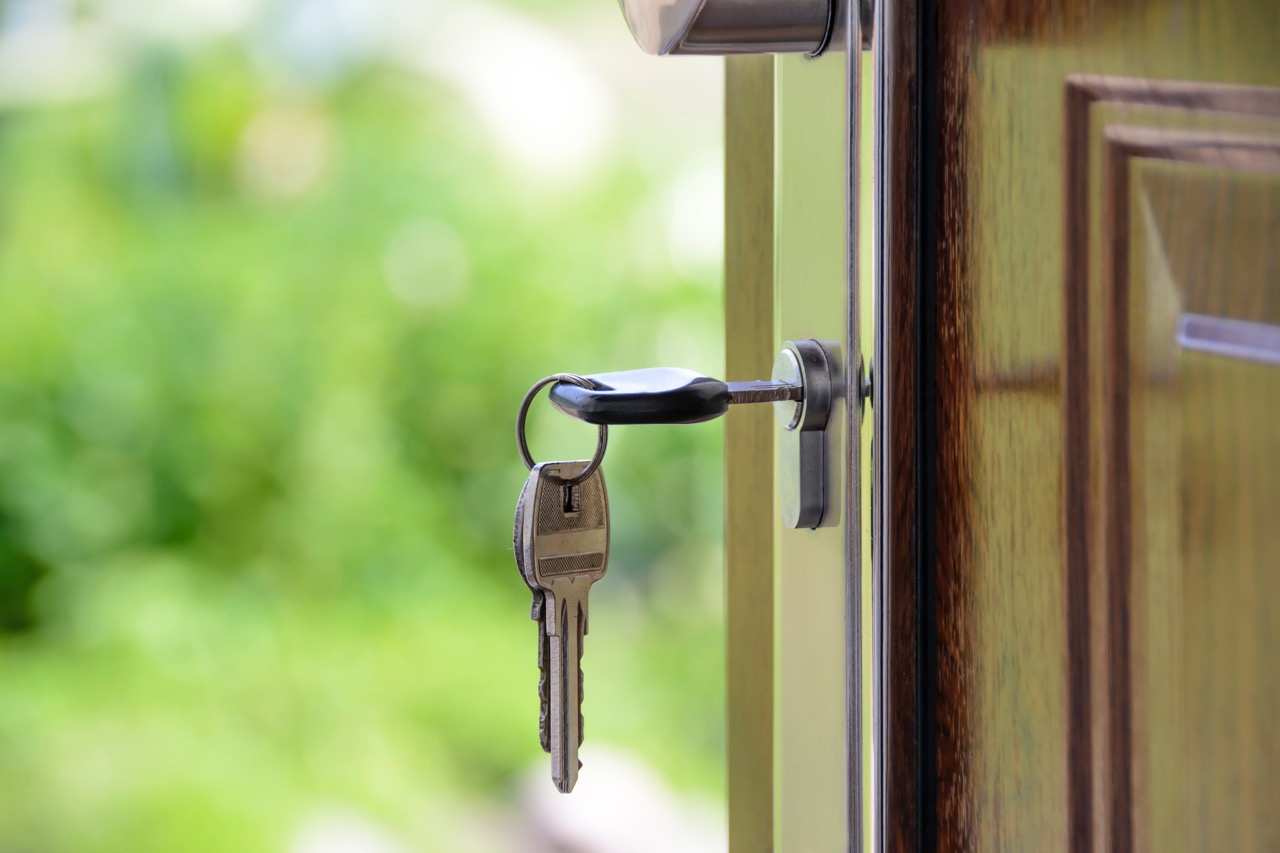
5. Evaluate the Need for New Locks
Security is a paramount concern when moving from an apartment to a house. Unlike apartment complexes with centralized security measures, houses require homeowners to take proactive steps to secure their property. It’s a good idea to start researching security systems prior to your move-in, but it can take time to compare options and select one that works best for your budget and your needs. That said, the best thing that you can do for security when you move in is to evaluate the need for new locks on doors and windows.
This is especially important if the previous owners had multiple key copies or if the existing locks have become outdated. While the previous owners have likely handed over all their keys, there’s no guarantee that a few haven’t gone missing over the years. Some risk exists that your property may remain unsecured.
After moving in, we’d recommend investing in new high-quality locks for all doors (and windows) for total peace of mind. These security measures can add to the list of additional costs associated with moving into a house. Factor them into your overall budgeting!
6. Conduct Thorough Home Inspections Prior to Move-In
Before finalizing the move, it’s a good idea to conduct a thorough pre-move inspection of the entire property. While this step is likely already conducted when closing on the home sale, it’s good to get a second set of eyes on your home’s critical components. It’s a cost-effective way to ensure you’re making a sound investment. It can pinpoint any concerns or potential issues that could need to be addressed prior to move-in or soon after.

Enjoy Your New Role as a Homeowner
Moving from a renter to homeowner is one of the best decisions that you could make for tons of reasons. First, you’ll earn equity on your property. You’ll also expand your living space significantly, and you’ll have more chances to personalize your space to your aesthetic. But, the transition will be a trying time! You’ll need to consider these six key factors for a more successful move. Keep in mind our advice to better equip yourself for the responsibilities of homeownership.
Nellia Melnyk is a Digital Marketing Specialist from Denver, CO. Her passion is to help businesses grow through marketing. She has experience in small editions and is now engaged in news and conceptual articles about home improvement, moving, self-development, and health.


